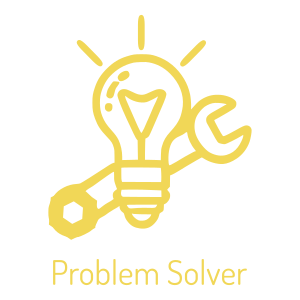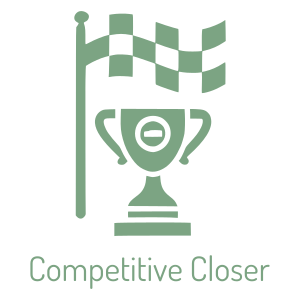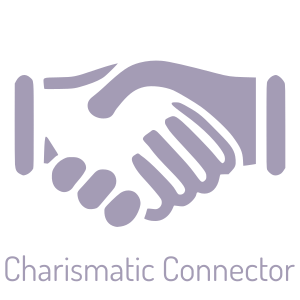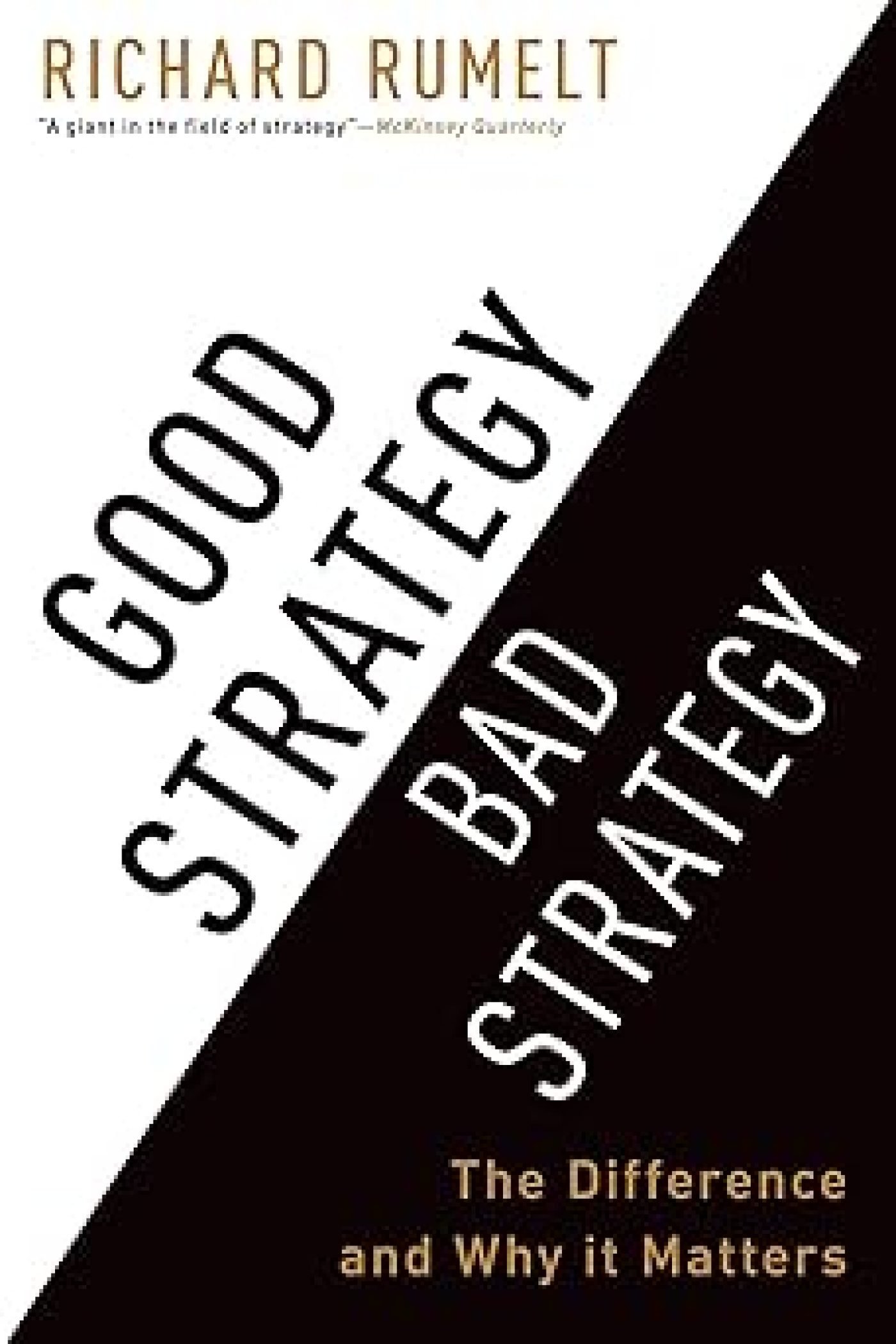
Tactical
The Tactical habit type thrives in environments where planning, precision, and strategy are essential for success. They excel at breaking down complex tasks into actionable steps, ensuring efficiency and clarity in execution. Known for their adaptability, Tactical individuals are quick to adjust their strategies in response to changing circumstances without losing focus on their objectives. While their meticulous approach often leads to impressive results, they may sometimes overanalyze or struggle with delegating tasks to others. By leveraging their strategic mindset and learning to trust others’ contributions, Tactical individuals can achieve remarkable outcomes both personally and professionally.
Have you found your Tailored Approach?

Tactical
The Tactical individual thrives on strategic planning and efficient execution. They excel in creating step-by-step plans that maximize productivity and ensure that each action is aligned with broader objectives. With a focus on smart resource allocation and adaptability, they navigate complex situations by anticipating obstacles and adjusting their approach while still driving toward measurable outcomes.
Have you found your Tailored Approach?
Our Tailored Book Suggestions for Tactical Habits
The Tactical's Action Center
Action Catalysts

Action Constraints

Clear Prioritization: Establishing a hierarchy of tasks ensures efficient use of time and resources.
Strategic Planning: Creating detailed action plans helps maintain focus and align efforts with long-term goals.
Adaptive Problem-Solving: The ability to pivot strategies quickly ensures they stay effective in dynamic situations.
Focus on Outcomes: A results-driven mindset keeps them motivated and aligned with their objectives.
Access to Data: Having reliable information enhances their ability to make informed, tactical decisions.
Over-Analysis Paralysis: Excessive planning or hesitation can delay decision-making and progress.
Resistance to Delegation: A preference for maintaining control may limit collaboration and efficiency.
Perfectionism Pressure: High standards can lead to stress and difficulty completing tasks to satisfaction.
Unexpected Disruptions: Sudden changes can challenge their need for well-defined plans.
Lack of Resources: Limited tools or information can hinder their ability to create effective strategies.
Find Your Outcome Today!
Consistency for the Tactical Type
With regards to Consistency, the Tactical type excels in maintaining consistency through careful planning and strategic execution. They thrive when they can break down larger goals into actionable, step-by-step processes that ensure steady progress. Their adaptable nature allows them to adjust plans when faced with challenges, keeping their actions aligned with their objectives. While their focus on precision and results supports their consistency, they may occasionally struggle with over-planning or hesitating when immediate decisions are required. By combining their strategic mindset with a willingness to embrace flexibility, the Tactical type can achieve a reliable and sustainable rhythm in their efforts.
Tactical Type + Personality Strength: Mind & Body


Mental Optimization
Physical Optimization
Strategic Focus Blocks: Plan undisturbed periods for deep thinking and problem-solving to maintain consistent mental clarity.
Goal Mapping Sessions: Create visual goal maps to break down tasks and track progress effectively.
Solo Brainstorming: Dedicate time for individual brainstorming to generate innovative strategies in a quiet environment.
Routine Physical Activity: Engage in consistent solo exercises like walking or swimming to clear the mind and maintain health.
Mindful Movement Practices: Incorporate yoga or tai chi to blend physical relaxation with mental focus.
Structured Fitness Goals: Set detailed fitness objectives with clear timelines to ensure steady progress.


Mental Optimization
Physical Optimization
Flexible Planning Techniques: Use adaptable planning tools to balance focused work with spontaneous adjustments.
Reflection-Driven Strategy: Regularly reflect on past strategies to refine future approaches while staying consistent.
Incremental Progress Reviews: Set up weekly check-ins to evaluate progress and adjust plans as needed.
Adaptive Exercise Plans: Create a workout routine that allows for flexibility while maintaining regular activity.
Body and Mind Synergy: Include exercises like Pilates or stretching that support both physical and mental clarity.
Fitness Journaling: Track physical activity and progress to stay aligned with long-term health goals.


Mental Optimization
Physical Optimization
Dual-Mode Planning: Alternate between focused solo planning and collaborative discussions to enhance strategy consistency.
Midweek Progress Reports: Schedule a midweek review to reassess and refine action steps while staying on track.
Structured Brain Breaks: Incorporate short mental breaks to recharge focus and maintain clarity in planning.
Balanced Fitness Routines: Alternate between solo exercises and small-group activities for variety and consistency.
Activity-Based Goal Setting: Use fitness goals as a motivator for maintaining overall structure in daily routines.
Short Active Breaks: Incorporate quick, intentional physical breaks to sustain focus during strategic work.


Mental Optimization
Physical Optimization
Group Feedback Sessions: Schedule collaborative meetings to gain input on strategies while maintaining planning consistency.
Interactive Goal Setting: Use discussions with others to create actionable, shared goals that inspire commitment.
Dynamic Planning Adjustments: Allow for real-time feedback during implementation to refine strategies effectively.
Social Fitness Challenges: Join group fitness programs to stay motivated and engaged in physical activity.
Partner Workouts: Pair up with a fitness buddy to combine strategy and accountability in exercise routines.
Community Fitness Events: Participate in community runs or events to stay consistent while networking.


Mental Optimization
Physical Optimization
Collaborative Planning Huddles: Host regular team discussions to strategize and refine action plans dynamically.
Public Goal Declarations: Share plans and objectives with a group to stay motivated and accountable.
High-Energy Strategy Sessions: Use lively, interactive sessions to generate ideas and maintain focus on objectives.
Energetic Team Sports: Commit to regular participation in team sports to combine physical activity with social interaction.
High-Intensity Group Classes: Attend high-energy fitness classes to stay consistent while engaging with others.
Fitness Leadership Roles: Take the lead in organizing group workouts or fitness events to motivate yourself and others.
Tactical Type + Real Estate Strategy: Lead Generation & CE Courses


Lead Generation Suggestions
CE Course Suggestions
Data-Driven Campaign Planning: Use analytics tools to craft targeted marketing strategies that appeal to high-value leads.
Segmented Lead Management: Categorize leads by readiness and develop tailored outreach plans for each segment.
Detailed Follow-Up Templates: Create structured templates for email and phone follow-ups to maintain consistency.
Market Analysis: Courses focusing on advanced market analysis techniques to refine your data-driven decision-making.
Contract Review and Management: Courses on understanding and perfecting transactional documentation.
Investment Strategy Development: Classes on evaluating real estate investment opportunities.


Lead Generation Suggestions
CE Course Suggestions
Challenge-Based Prospecting: Target leads in complex or underserved markets, using creative approaches to build trust.
Iterative Campaign Testing: Continuously test and adjust marketing strategies for the most effective engagement methods.
Customized Outreach Solutions: Design unique outreach efforts tailored to each lead’s specific challenges or needs.
Creative Marketing Techniques: Courses on innovative approaches to reach unique market segments.
Advanced Negotiation Tactics: Training on handling complex negotiations with multiple stakeholders.
Risk Management Strategies: Learning to identify and mitigate potential challenges in transactions.


Lead Generation Suggestions
CE Course Suggestions
Personalized Lead Funnels: Develop relationship-focused lead funnels that nurture trust and build long-term connections.
Consistent One-on-One Engagement: Schedule regular, personalized interactions with high-potential leads.
Collaborative Marketing Partnerships: Partner with other professionals to co-market properties and expand your lead base.
Client Relationship Building: Training on fostering long-term client trust and loyalty.
Cultural Competency in Real Estate: Courses on effectively serving diverse populations.
Referral Network Development: Strategies for growing and leveraging referral-based business.


Lead Generation Suggestions
CE Course Suggestions
Conversion-Focused Campaigns: Build marketing strategies that emphasize urgency and drive leads toward quick decisions.
Priority-Based Outreach: Develop a ranking system to prioritize outreach efforts for leads most likely to convert.
Results-Driven Scripts: Use refined scripts to guide conversations toward securing commitments efficiently.
Sales Psychology and Behavior: Understanding client decision-making to drive faster conversions.
Time Management for Closers: Classes focused on optimizing productivity in high-pressure environments.
Closing Techniques Mastery: Advanced methods to secure deals swiftly and effectively.


Lead Generation Suggestions
CE Course Suggestions
Community Engagement Initiatives: Plan events that bring potential leads together while showcasing your expertise.
Social Media Campaigns: Leverage storytelling and vibrant visuals to engage a broad audience on platforms like IG and Facebook.
Influencer Collaborations: Partner with local influencers to build trust and expand your network of leads.
Storytelling in Real Estate: Training on crafting compelling narratives to connect with clients emotionally and enhance engagement.
Event-Based Marketing: Courses on organizing and hosting real estate events to leverage your charismatic presence.
Social Media Strategy Development: Focusing on building vibrant online communities and using platforms effectively for lead-gen.
Find Your Outcome Combinations Today!
Commitment for the Tactical Type
In Commitment, the Tactical type demonstrates unwavering dedication through their strategic and methodical approach to achieving long-term goals. They excel at breaking down complex objectives into clear, actionable steps, ensuring consistent progress toward their commitments. Their adaptability allows them to adjust their strategies when faced with obstacles, maintaining focus and momentum even in challenging circumstances. While their meticulous nature is a strength, they may occasionally overthink decisions or hesitate to delegate tasks. By balancing their tactical precision with a willingness to embrace collaboration and flexibility, they can achieve outstanding results and sustain their commitments over time.
Tactical Type + Personality Strength: Mind & Body


Mental Optimization
Physical Optimization
Focused Visualization: Dedicate time to visualizing long-term goals in a quiet environment to reinforce commitment.
Strategic Journaling: Write detailed plans and reflections to maintain clarity and resolve.
Solo Progress Reviews: Schedule regular self-assessments to evaluate progress and refine strategies.
Structured Fitness Goals: Set long-term health goals and outline incremental steps for achieving them.
Quiet Solo Activities: Commit to individual exercises like yoga or hiking for both physical and mental clarity.
Mindful Movement Practices: Use activities like tai chi to integrate physical relaxation with strategic thinking.


Mental Optimization
Physical Optimization
Balanced Reflection Sessions: Alternate between solo reflections and light discussions with trusted peers to stay committed.
Adaptable Planning Logs: Use flexible templates to adjust goals as priorities evolve.
Routine Motivational Check-Ins: Include weekly self-affirmations or inspiring content to maintain focus.
Routine Flexibility Training: Incorporate adaptable fitness routines that align with evolving schedules.
Holistic Health Journals: Track wellness goals to connect physical progress with mental clarity.
Balanced Workouts: Alternate between restorative exercises and moderate activity to stay engaged.


Mental Optimization
Physical Optimization
Dual-Mode Planning: Combine individual strategy sessions with occasional collaborative brainstorming.
Goal Setting Workshops: Organize small, focused workshops to refine and affirm your objectives.
Periodic Progress Recalibrations: Incorporate time every few weeks to reassess and realign strategies.
Integrated Wellness Plans: Combine individual fitness goals with occasional group activities for variety.
Periodic Fitness Reassessments: Regularly evaluate progress to ensure alignment with overall goals.
Dynamic Physical Challenges: Set milestone-based fitness objectives to keep workouts purposeful.


Mental Optimization
Physical Optimization
Interactive Vision Boards: Create shared vision boards with peers for inspiration and accountability.
Group Planning Discussions: Use team meetings to reinforce your commitment while gathering input.
Engaged Accountability Systems: Set up mutual progress checks with colleagues to maintain focus.
Partner Fitness Plans: Work out with a buddy to maintain motivation and accountability.
Community Fitness Events: Commit to participating in regular charity runs or group fitness challenges.
Social Activity Integration: Incorporate movement-based social activities, like recreational sports leagues.


Mental Optimization
Physical Optimization
Public Goal Announcements: Share your objectives in group settings to stay accountable and motivated.
Energetic Brainstorming Sessions: Use dynamic discussions to refine strategies and energize commitment.
Collaborative Planning Networks: Build a network of like-minded peers to maintain commitment through shared accountability.
High-Intensity Group Classes: Join energetic group sessions to sustain physical consistency and social engagement.
Team-Based Fitness Goals: Organize team challenges to blend physical activity with shared commitment.
Leadership in Wellness: Take charge of coordinating group fitness events to reinforce your dedication and inspire others.
Tactical Type + Real Estate Strategy: Lead Generation & CE Courses


Lead Generation Suggestions
CE Course Suggestions
Detailed Market Segment Plans: Identify niche markets and develop detailed outreach strategies to ensure consistent lead generation.
Analytical Follow-Up Systems: Use data insights to create tailored follow-up schedules for optimal client engagement.
Performance Review Frameworks: Regularly analyze campaign results to refine and improve lead generation efforts.
Market Analysis Expertise: Advanced courses on forecasting trends and utilizing predictive analytics in real estate.
Tech-Enhanced Transactions: Training on integrating cutting-edge tools like AI or blockchain into transaction management.
Urban Development Insights: Classes on zoning, land-use planning, and urban infrastructure impacts on market value.


Lead Generation Suggestions
CE Course Suggestions
Creative Prospecting Approaches: Focus on leads with unique challenges, using innovative strategies to gain their trust.
Feedback-Driven Outreach: Continuously adjust campaigns based on client feedback and performance data.
Challenge-Oriented Content: Develop content that addresses common client pain points to draw in qualified leads.
Creative Marketing Innovations: Courses on designing unique digital and physical campaigns for hard-to-reach markets.
Conflict Resolution for Agents: Training on navigating disputes with clients, colleagues, or stakeholders effectively.
Sustainable Real Estate Practices: Learning to identify and market eco-friendly properties for niche markets.


Lead Generation Suggestions
CE Course Suggestions
Connection-Focused Funnels: Build lead generation systems that prioritize trust and long-term relationship building.
Personalized Engagement Tactics: Use direct outreach, such as handwritten notes or personalized emails, to deepen connections.
Collaborative Referrals: Create referral networks with other agents to expand your client base while remaining relationship-driven.
Personal Branding for Real Estate: Classes on creating a compelling personal brand that fosters trust and connections.
Generational Marketing Strategies: Training on adapting approaches to engage clients across multiple age groups effectively.
Local Market Networking: Learning to build powerful connections within local real estate ecosystems.


Lead Generation Suggestions
CE Course Suggestions
Conversion-Focused Campaign Strategies: Design campaigns that emphasize urgency to drive quick decisions from potential clients.
Priority Ranking Systems: Categorize and focus on leads with the highest potential to convert rapidly.
Streamlined Sales Scripts: Create structured scripts that guide conversations toward securing client commitments efficiently.
Advanced Sales Funnel Design: Courses on crafting sales funnels optimized for high-speed lead-to-client conversion.
High-Stakes Negotiation Tactics: Training tailored to fast-paced, competitive transaction scenarios.
Luxury Real Estate Mastery: Insights into marketing and closing deals in high-end property markets.


Lead Generation Suggestions
CE Course Suggestions
Interactive Community Events: Host community events to attract leads while showcasing your approachable personality.
Engaging Online Campaigns: Use vibrant storytelling and interactive social media campaigns for a wider audience.
Collaborative Partnerships: Partner with local businesses to co-host events or cross-promote services for expanded leads.
Community Leadership in Real Estate: Classes on taking leadership roles in local organizations to build credibility and connections.
Interactive Marketing Techniques: Training on using VR, AR, or video tours to engage modern buyers.
Event-Based Business Growth: Strategies for hosting impactful events that turn attendees into loyal clients.





